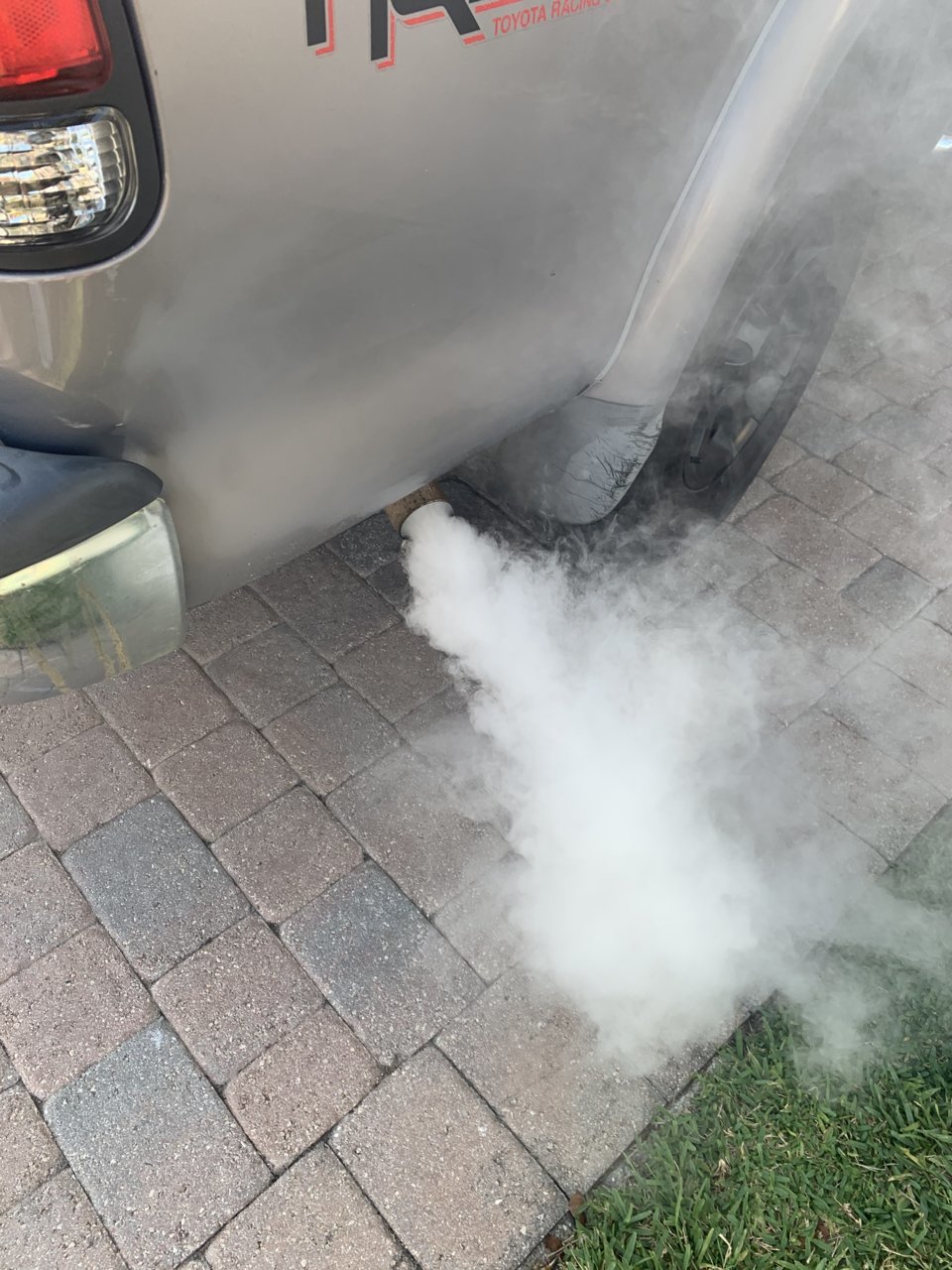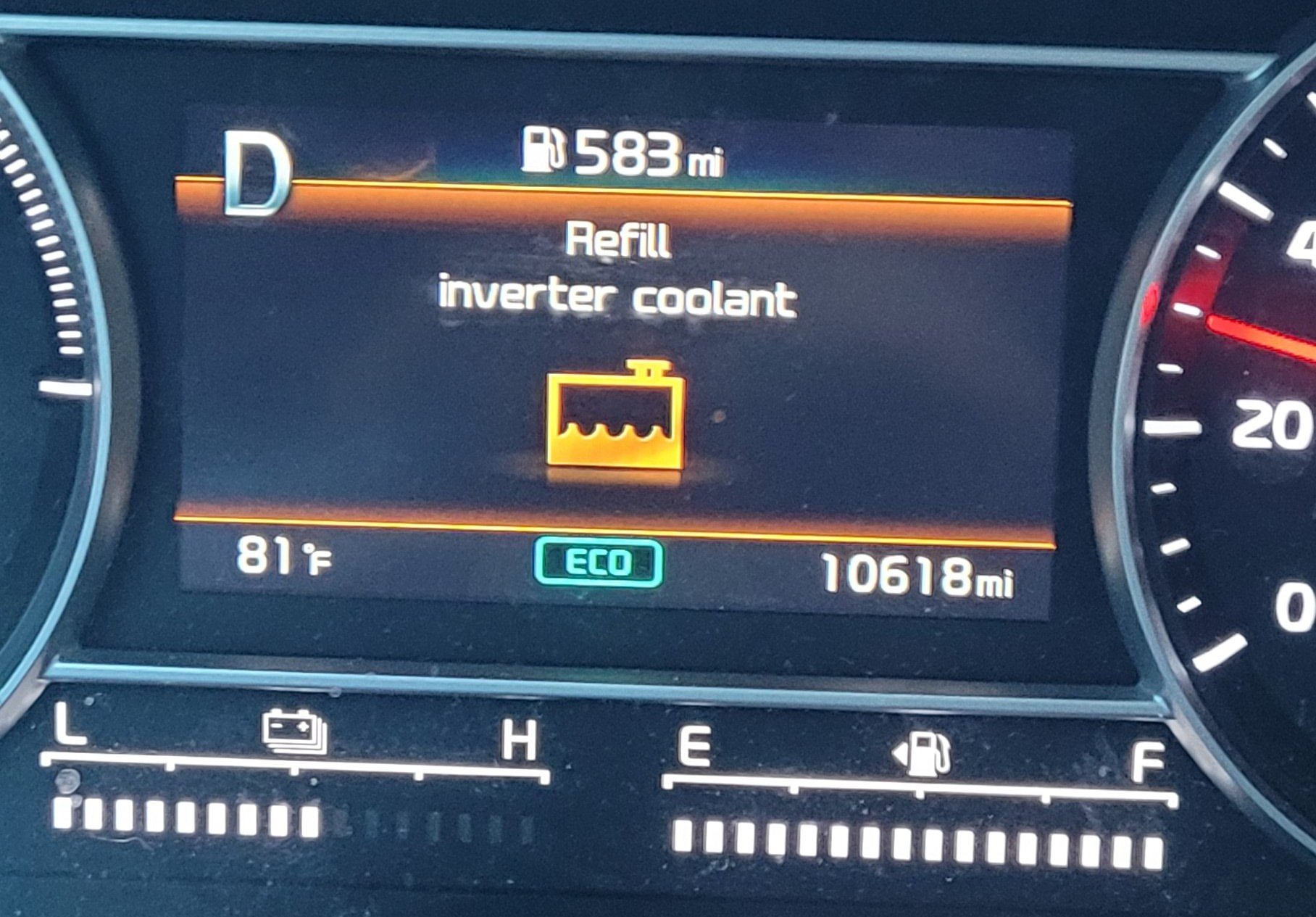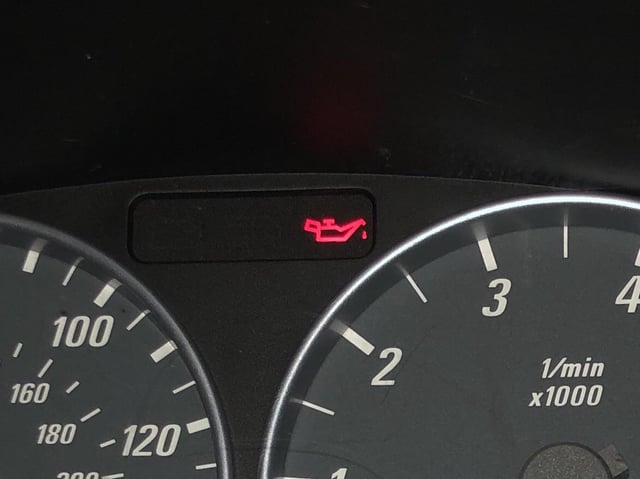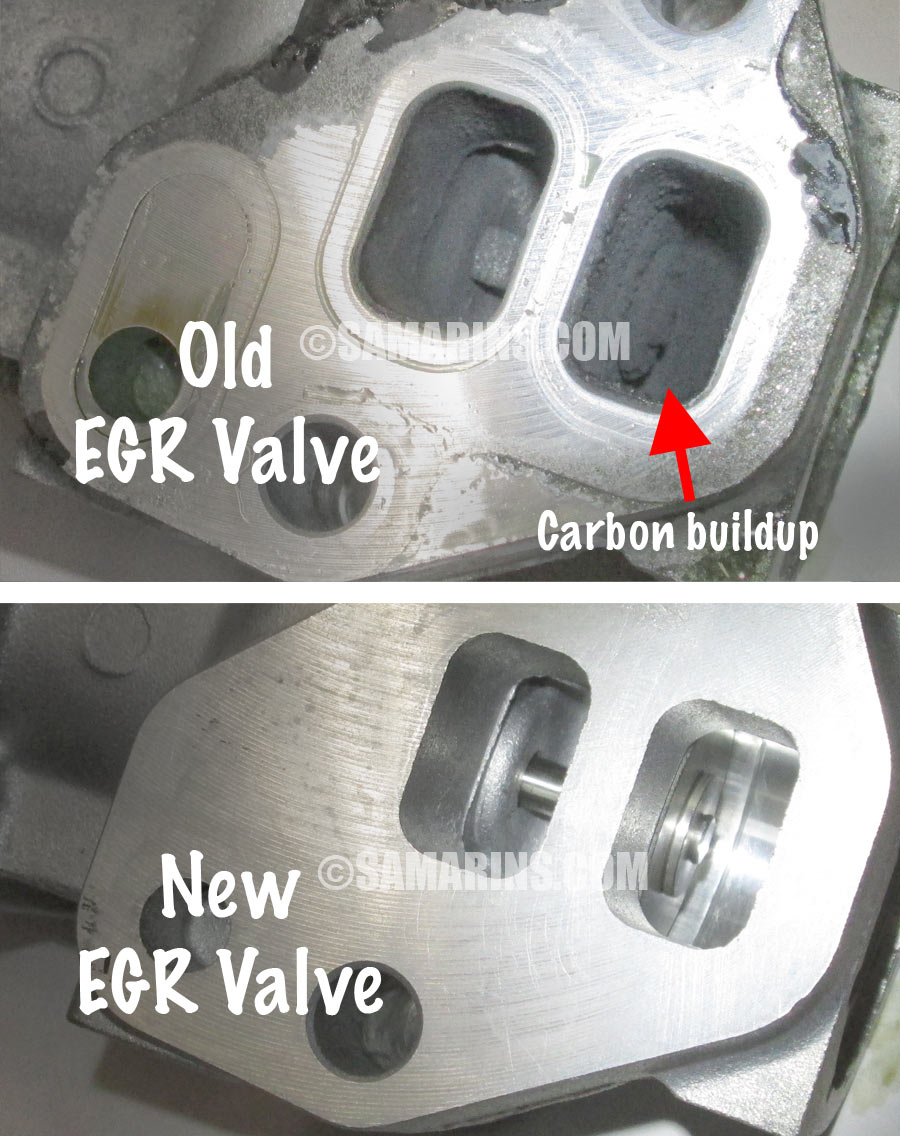Can a Bad Oil Cooler Cause White Smoke
A defective oil cooler can indeed cause white smoke from the exhaust. This typically indicates the presence of oil in the combustion chamber.
Understanding the reasons behind white smoke emissions from your vehicle is crucial for any car owner. When an oil cooler malfunctions, it may allow engine oil to mix with the coolant. Once this mixture enters the combustion chamber, it can lead to white smoke billowing out of the exhaust pipe as the oil burns alongside the fuel.
Diagnosing this issue early can save you from more significant engine troubles down the line. Regular maintenance checks help identify if an oil cooler is at fault and prevent costly repairs. Ensuring your vehicle’s components, including the oil cooler, function properly not only enhances performance but also extends the lifespan of your car.
Symptoms Of A Failing Oil Cooler
A car’s oil cooler helps maintain engine temperature by cooling the oil that lubricates engine components. Like any part, it can fail, and early detection is key to avoid costly repairs. Here are tell-tale symptoms to watch for.
White Smoke From Exhaust
Seeing white smoke from the tailpipe can signal trouble. Normally, the smoke should be invisible or light. White smoke suggests engine oil is mixing with fuel and burning. This could mean the oil cooler is leaking, pushing oil into combustion areas.
Check for a milky substance under the oil filler cap. If you find it, this could indicate that engine coolant is mixing with the engine oil due to a failing oil cooler.
Engine Overheating
Your engine running too hot is a serious symptom. The oil cooler plays a huge role in cooling your engine. Without it working right, the engine can overheat, leading to damage.
- Monitor your temperature gauge closely.
- Look out for warnings on your dashboard.
- Stop driving if you notice higher than normal temperatures.
If overheating occurs, inspect the oil cooler for any signs of blockage or damage.

Credit: www.amazon.com
Diagnosing White Smoke Issues
Noticing white smoke billowing from your exhaust can raise immediate concerns. It’s a signal your vehicle sends when something may not be functioning properly. Understanding what causes white smoke is crucial for a timely and accurate fix. Could a faulty oil cooler be contributing to this smoky signal? Let’s examine the common causes and assess the true color variations of exhaust smoke.
Assessing Exhaust Color Variations
The color of the smoke exiting your vehicle’s exhaust reveals a lot about the health of your engine. Here is a simple guide:
- White Smoke: Often indicates coolant entering the combustion chamber.
- Blue Smoke: Suggests oil is burning within the engine.
- Black Smoke: Typically points to an overly rich fuel mixture.
White smoke warrants deeper investigation as it could stem from a range of issues, including a compromised oil cooler that leads to coolant contamination.
Common Misdiagnoses
Pinpointing the exact cause of white smoke can be tricky. Some frequently misdiagnosed culprits include:
| Issue | Common Misdiagnosis |
|---|---|
| Condensation | Mistaken for a severe issue; often normal in cold weather. |
| Injector Problems | May be confused with a failing oil cooler. |
| Head Gasket Failure | Incorrectly identified as simple wear and tear. |
Seek professional diagnosis to avoid confusion between these and other potential causes when you spot white smoke.
The Role Of The Oil Cooler In Engine Health
Keeping your engine cool and happy is a job for the oil cooler. It’s a key player under the hood. Just like a superhero for your engine’s oil, it does wonders. From managing temperatures to protecting oil quality, an oil cooler helps big time. Without it, things can really heat up. This might even lead to white smoke rising from your car—a clear SOS signal.
Oil Temperature Regulation
Why does your car’s oil need a cool down? Let’s dive in. Engines run hot, especially when the action gets tough. Imagine your car climbing a steep hill or pulling a heavy load. That’s when the oil cooler steps up.
- Keeps oil cool: Even when the engine’s pushing hard.
- Stops overheating: No heatwaves for your oil means no meltdowns.
- Longer oil life: Cooler oil equals oil that says “I got this” for longer.
Preventing Oil Contamination
But wait, there’s more! The oil cooler is like a gatekeeper. It makes sure your oil stays clean. This means bye-bye to nasty stuff that shouldn’t be there.
- Traps dirt: Keeps the oil so clean that you could almost take a selfie in it.
- Stops sludge: Sludge equals trouble. Oil coolers say “No” to sludge parties.
- Keeps engine safe: No contamination, no problems. Your engine runs smoothly.
So, can a bad oil cooler lead to white smoke? You bet. If that oil temp goes wild or grime crashes the oil party, white smoke may be a sign. It’s the engine’s way of crying out for help.

Credit: www.mikejohnsimports.com
Link Between Oil Coolers And White Smoke
Peering under the hood of your car, you might wonder if an oil cooler can be a smokey troublemaker. Understanding how oil coolers can cause white smoke is crucial for any car owner. Let’s dive into the mechanical mystery.
Oil-coolant Cross-contamination
Your car’s oil cooler plays a pivotal role in managing your engine’s temperature. But when it fails, the consequences are messy.
- The oil cooler’s job is to keep oil at the right temperature.
- A leaky oil cooler can mix oil with coolant.
- This mix threatens your engine’s integrity.
| Cooling System Part | Function | Potential Issue |
|---|---|---|
| Oil Cooler | Regulates Oil Temperature | Leakage Leading to Cross-contamination |
| Engine Oil | Lubricates Engine Parts | Could Become Contaminated |
| Coolant | Absorbs Engine Heat | Could Become Contaminated |
Impact On Combustion
When oil invades the combustion chamber, it’s a recipe for smoke.
- Contaminated mix injures combustion, reducing engine performance.
- White smoke signals burning coolant or oil in the chamber.
- Quick action is essential to prevent lasting harm to your car.
Spot the warning signs and protect your engine’s health. Act before those wisps of white spell trouble.
Steps To Address Oil Cooler Malfunctions
Oil coolers keep engine oil at the right temperature. But if they break, engines may puff white smoke. Being smart and fixing an oil cooler fast can save your engine and wallet. Let’s dive into how to tackle oil cooler troubles.
Inspection And Testing
Start with a thorough check-up. Look for oil leaks. Watch for coolants in the oil. Check engine coolant for oil traces.
Use pressure tests to find leaks. A cooling system tester can help. If an oil cooler fails these tests, repair or change it fast.
Replacement And Repair
Sometimes, you need new parts. Choose quality replacements. Ensure they match your car’s make and model. Follow these steps:
- Drain the coolant and oil before removing the faulty cooler.
- Remove any parts blocking the old oil cooler.
- Take the oil cooler off. Be gentle to avoid damage.
- Clean the area. Make sure it’s ready for a new cooler.
- Install the new cooler. Secure all connections.
- Refill with fresh oil and coolant.
- Run the engine. Check for leaks. Make sure smoke is gone.
These steps can help fix an oil cooler, stopping white smoke and saving engines.
Preventative Measures For Oil Cooler Maintenance
An oil cooler plays a critical role in maintaining your engine’s performance. Neglect can lead to white smoke and other issues. Preventative steps can save the day. Here’s a top-notch guide to keeping your oil cooler in stellar condition.
Routine Check-ups
Regular maintenance schedules keep oil coolers running smoothly. Mark your calendar for these check-ups. Mechanics should inspect hoses, seals, and the cooler itself.
- Clean the cooling fins.
- Check for leaks and damage.
- Replace old coolant on time.
Recognizing Early Warning Signs
Spot issues before they escalate. Several signs spell trouble for oil coolers. Stay vigilant for:
| Warning Sign | What It Means |
|---|---|
| Oil in Coolant | Possible cooler leak |
| Coolant in Oil | Head gasket may fail soon |
| Overheating Engine | Cooler might be blocked |
Listen for unusual noises and monitor your dashboard for signs. Timely action can prevent major repairs. Notice these symptoms? Visit a professional mechanic promptly!

Credit: m.youtube.com
Frequently Asked Questions For Can A Bad Oil Cooler Cause White Smoke
Can Oil Cooler Issues Lead To White Exhaust Smoke?
Yes, a malfunctioning oil cooler can cause white smoke. The cooler’s leak may lead to oil mixing with the coolant. This mixture can breach the combustion chamber, where it burns off as white smoke from the exhaust system.
How Does A Bad Oil Cooler Affect Engine Performance?
A faulty oil cooler can impact engine performance negatively. It may cause the engine to overheat or operate inefficiently due to improper oil cooling. It could also result in poor lubrication, leading to increased engine wear.
What Signs Indicate A Failing Oil Cooler?
Indications of a failing oil cooler include oil in the coolant reservoir, engine overheating, and white smoke from the exhaust. Additionally, you might notice oil pressure issues or coolant leaks near the oil cooler.
Is White Smoke Always A Symptom Of A Bad Oil Cooler?
White smoke isn’t always a symptom of a bad oil cooler. It can also be caused by a blown head gasket, cracked engine block, or condensation burning off in the exhaust pipe, especially on cold days.
Conclusion
Understanding the link between a faulty oil cooler and white smoke is crucial for vehicle health. Replacing a compromised oil cooler promptly prevents engine damage. Regular maintenance checks are your best shield against such issues. Drive confidently knowing you’re informed and prepared to tackle engine warning signs.





